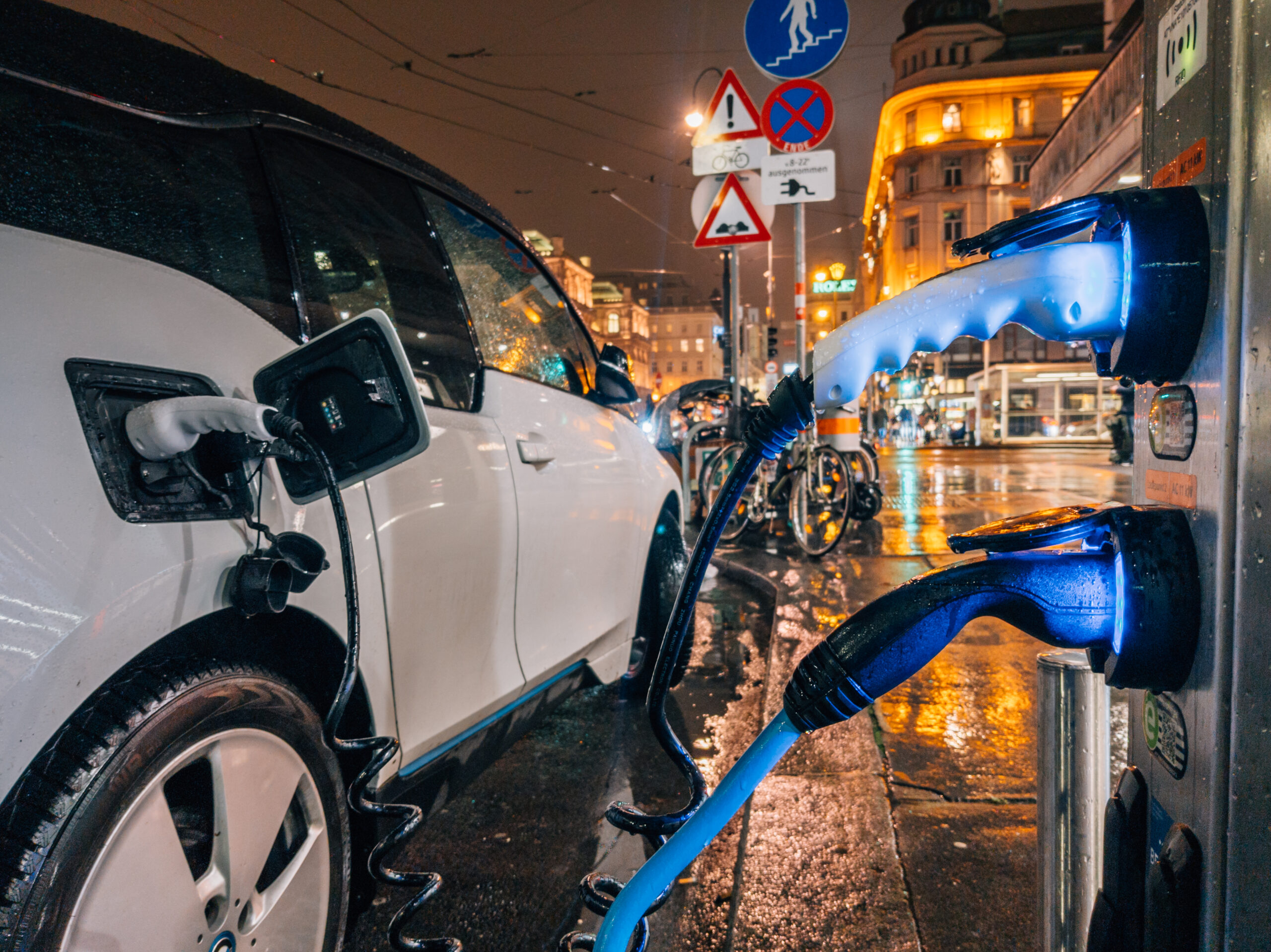Carson’s public parks will soon feature level 2 EV chargers. Photo by Ivan Radic courtesy of Flickr.
By Licia Summerhill, Staff Reporter
As more residents choose electric vehicles over traditional gas-powered vehicles, the demand for public chargers is growing. To meet this demand, the city of Carson has unveiled its plan to install more electric vehicle chargers in an effort to reduce emissions within the city.
The plan, which is already underway, allows residents to access level 2 chargers at 11 public parks. Once installed, each park will allow residents to access electric vehicle charging stations in the comfort of their own neighborhoods without having to wait at shopping centers to charge.
For electric vehicle owners, the acronym ABC – Always Be Charging – is a way of life. ABC is a paradigm shift to remember that the electric way of fueling your vehicle differs from a regular, gasoline-powered vehicle. Instead of fueling up a vehicle once a week, the electric vehicle could very well recharge on a daily basis after work or at work during working hours. Similar to a cell phone, an electric vehicle would theoretically charge with enough battery to last for a few days. This allows for a smaller amount of miles per tank since the fueling is frequently done on a daily to weekly basis.
Carson is currently installing 20 Tesla Superchargers at City Hall which are scheduled to be operational by the end of 2023. There are plans in place to install an additional 128 ChargePoint outlets across 11 public parks and two corporate businesses within Carson limits. With an average of 10 ports per public park, Carson will be able to provide enough public charging stations for both visitors and residents.
Among the parks scheduled to receive ChargePoint electric vehicle charging stations are: Veterans Park, Dominguez Park, Anderson Park, Carriage Crest Park, Carson Park, Dolphin Park, Stevenson Park, Hemingway Park and Hemingway Aquatic Center.
Back in 2019, the city council made its commitment to a net zero advanced energy community. The plan included finding a feasible way to add electric vehicle charging stations in the community as a way of life. While local businesses have offered charging stations as a way to increase profits and provide extra income, the city has developed a holistic approach to rethinking how to involve the community in a greener lifestyle.
The approach included finding a way to incorporate chargers in locations that would be accessible to all community members and allowed residents to walk home from the charging station. The distance between public parks and the residents seemed to be the perfect fit to encompass accessibility for city residents.
The electric vehicle plan will benefit all residents and visitors by allowing electric vehicle charging at parks where the community comes together for sports, recreation, and local events. The idea behind the plan is to afford Carson residents a place to charge their vehicles in a safe, public area that allows recreation while charging along with a central area that provides charging close to home.
For some drivers, electric vehicle charging is a luxury that not everyone can afford. The price of electricity is minimal, according to the latest report published by the U.S. Department of Energy costing only $.16 per kilowatt compared to a national average of $4.05 per gallon of gasoline, however, the sparsity of public electric chargers may deter owners from buying an electric vehicle.

